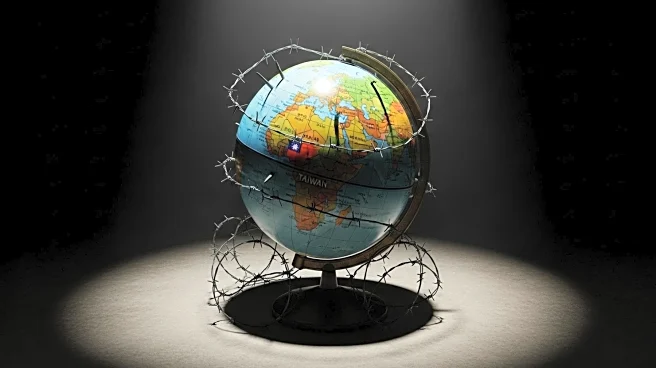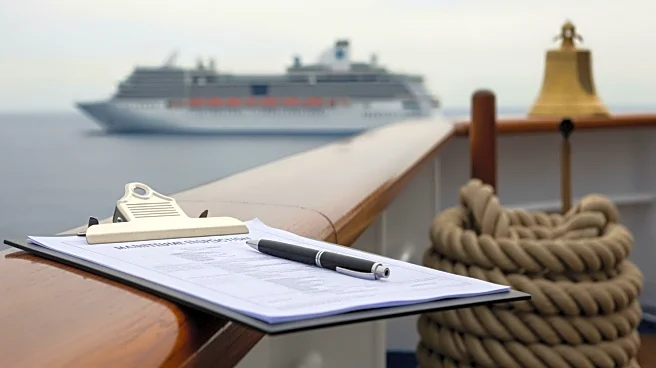What's Happening?
Taiwan's President Lai Ching-te has used the 80th anniversary of World War II to challenge Beijing's narrative, framing the conflict as a battle between democracy and authoritarianism. This marks the first time a Taiwanese President has celebrated Victory in Europe (VE) day, strengthening ties with Europe amidst unstable relations with Washington. Lai's speech emphasized the need for global cooperation to prevent aggressors from advancing their ambitions. The move is seen as a pushback against Beijing's increasing pressure on Taiwan, as China prepares for a grand military parade to commemorate the war's end, attended by leaders like Russia's Vladimir Putin and North Korea's Kim Jong Un.
Why It's Important?
Lai's reframing of WWII as a struggle between democracy and authoritarianism challenges Beijing's historical narrative and highlights Taiwan's quest for international support against Chinese pressure. This narrative shift could influence Taiwan's diplomatic relations, particularly with Western democracies, as it positions Taiwan as a defender of democratic values. The move also underscores the ongoing geopolitical tensions in the region, with Taiwan seeking to assert its identity separate from China's Communist Party. The historical reinterpretation may affect Taiwan's internal politics, as it contrasts with the opposition Kuomintang's more China-centric identity.
What's Next?
The conflicting narratives between Taiwan and China are likely to continue, with potential diplomatic repercussions. Taiwan may seek further international alliances to bolster its position against Chinese claims. The upcoming military parade in Beijing could serve as a platform for China to assert its historical narrative and strengthen ties with authoritarian regimes. Meanwhile, Taiwan's efforts to align with democratic nations may lead to increased support from Western countries, potentially escalating tensions with China.
Beyond the Headlines
The historical debate over WWII's legacy reflects broader ideological conflicts between democracy and authoritarianism. Taiwan's narrative challenges China's portrayal of itself as a major power in the contemporary world order, potentially influencing global perceptions of both nations. The reinterpretation of history may also impact cultural and educational narratives within Taiwan, shaping future generations' understanding of their national identity.









